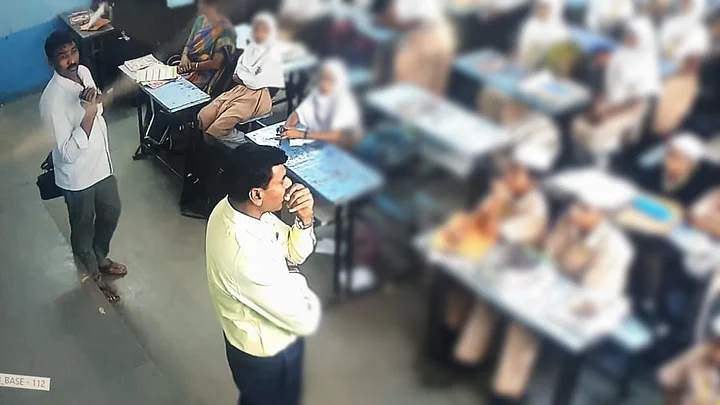While granting anticipatory bail to the management of Shaheen Educational Institute that runs the Shaheen Urdu Primary School that staged the play critical of CAA over a month ago on 21 January, a Bidar sessions court observed that ‘the ingredients of Section 124A of IPC (Sedition) are prima facie lacking’.
According to a report in Live Law, Sessions Judge Managoli Premavath made the observations while granting anticipatory bail to the school management, founder Abdul Qadeer. He was granted the interim relief on execution of a personal bond of Rs 2 lakh, along with three sureties.
After spending over two weeks in prison, the other two accused – teacher Fareeda Begum and parent, Najbunnisa who were arrested on charges of sedition in January – walked out of Bidar Central Prison and Correction Services on 15 February.
What the Court Said
“The records do not make out the presence of the accused/petitioner during the course of enacting the drama. The drama has not caused any disharmony in the society. Considering all the circumstances, I am of the opinion that the ingredients of Section 124A of IPC (Sedition) are prima facie lacking,” Judge Managoli Premavathi observed.
The sessions court also reportedly noted that “Shaheen Educational Institution is imparting qualitative education to the students and the institution has earned several awards for its achievements in the field of education.”
A case of sedition and inciting communal disharmony had been registered against the management of the school and a journalist for allegedly ‘showing PM Modi in a bad light’ through the play that had 9-11-year-olds performing. Following the FIR, Bidar police had repeatedly interrogated minors over several days for hours together, in what activists and lawyers called ‘a violating of child care laws and international guidelines’ on dealing with minors who are accused of being in conflict with the law.
The court reportedly observed that: “What the children have expressed is that, they will have to leave the country if they do not produce the documents and except that, there is nothing to show that, he has committed the offence of sedition. The dialogue, in my considered opinion, does not go to bring into hatred or disaffection towards the government.”
Placing citizens’ rights to protest at the fore, the court also observed that there were rallies and protests for and against the CAA, NRC and “as a citizen everybody has got the right to express disapprobation of the measures of the government with a view to obtain their alteration by lawful means.”
Noting that the play was shared on social media, it added that “The said play has been enacted on 21 January, but information has been lodged on 26 January. If at all it was not uploaded on Facebook, even the public could not have come to know about the dialogue of that drama.”
Addressing the accusations of inciting communal disharmony, the court also reportedly noted that there was no reference to any other community in the play. “When there is no other religion in the entire drama, there is no question of causing disharmony between two religions which is the main requirement of the offence punishable”.
(With inputs from Live Law)
(At The Quint, we question everything. Play an active role in shaping our journalism by becoming a member today.)
